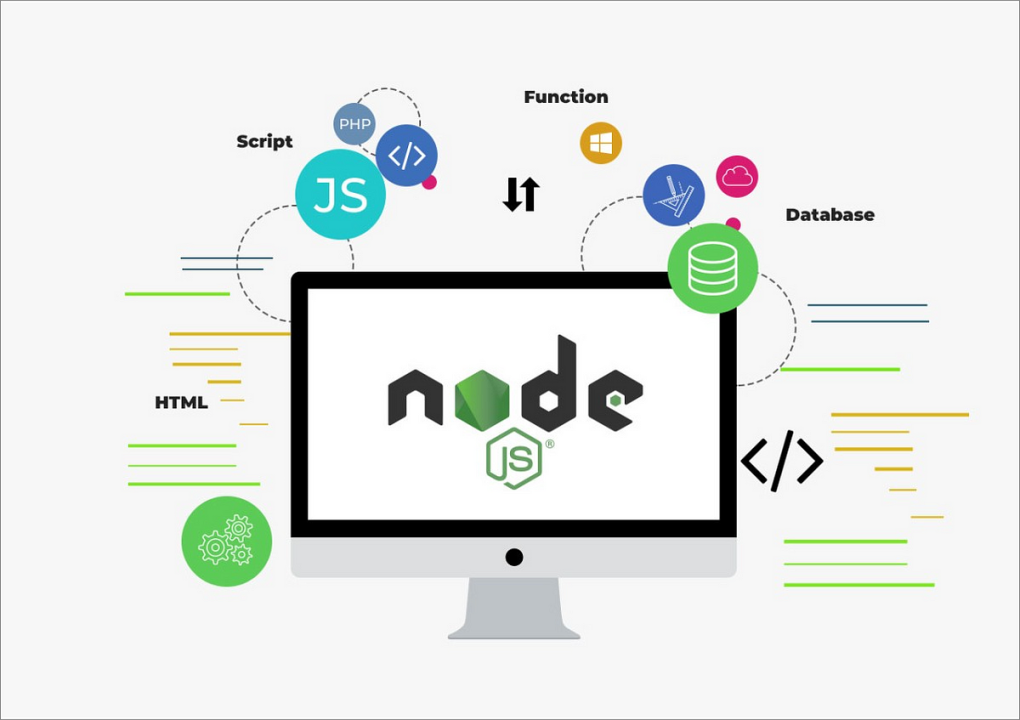ABCDou Insights
Exploring the world of news, trends, and information.
Node.js: The JavaScript Superhero You Didn't Know You Needed
Unleash the power of Node.js! Discover how this JavaScript superhero can transform your coding game and elevate your projects to new heights.
Understanding the Asynchronous Nature of Node.js: Why It Matters
The asynchronous nature of Node.js is one of its most distinguishing features, allowing developers to build high-performance applications that can handle numerous connections simultaneously. Unlike traditional server architectures that use a multi-threaded model, Node.js operates on a single-thread event loop, which means it can process incoming requests without blocking the execution of code. This non-blocking I/O paradigm enables efficient resource utilization, making it ideal for I/O-heavy operations, such as data retrieval from databases or APIs.
Understanding this asynchronous model is critical because it directly impacts how developers design their applications. For instance, when performing tasks such as file uploads or database queries, developers must rely on callbacks, promises, or async/await syntax to ensure that their code executes in the correct order without freezing the event loop. Embracing the asynchronous nature not only enhances application speed and scalability but also requires a shift in traditional programming approaches, fostering greater innovations in web application development.

Top 5 Real-World Applications of Node.js You Should Know
Node.js has emerged as a powerful tool in the world of web development, enabling developers to build scalable and high-performance applications. One of the most notable real-world applications of Node.js is in the creation of real-time web applications. Platforms like Slack and Trello utilize Node.js to provide users with seamless communication and instant updates, ensuring that all participants are in sync with the latest changes and messages. The non-blocking I/O and event-driven architecture of Node.js allow these applications to handle multiple requests simultaneously, making it ideal for chat applications, collaborative tools, and online gaming.
Another compelling application of Node.js is in the field of API development. Many organizations, such as Netflix and LinkedIn, leverage Node.js to build their backend services, allowing for quick API responses and improved efficiency. This efficiency is particularly beneficial when dealing with large amounts of data, as Node.js can manage data-intensive applications with ease. By employing a single programming language for both the frontend and backend, developers can streamline their development process and improve collaboration, further enhancing the benefits of using Node.js in modern software architecture.
How Node.js Handles Concurrent Requests: A Deep Dive
Node.js has revolutionized the way developers manage concurrent requests by leveraging an event-driven, non-blocking I/O model. This architecture allows a single-threaded server to handle thousands of connections simultaneously without overwhelming the system resources. Instead of creating a new thread for each request, Node.js operates on an event loop that processes multiple operations in a single thread, allowing applications to remain responsive and efficient even under heavy load. The asynchronous nature of Node.js ensures that when a request is made, the server can continue executing other code while waiting for responses from I/O operations, thus improving performance significantly.
To illustrate the efficiency of this approach, consider the following key points when analyzing how Node.js manages concurrent requests:
- Event Loop: Handles all incoming requests and executes callback functions once operations are completed.
- Callbacks and Promises: Ensures that tasks dependent on I/O operations are executed seamlessly without disturbing the main execution thread.
- Scalability: Supports horizontal scaling, allowing multiple instances of applications to run in parallel, enhancing the capacity to handle more connections.
Understanding these core mechanisms is essential for developers looking to optimize their applications using Node.js.